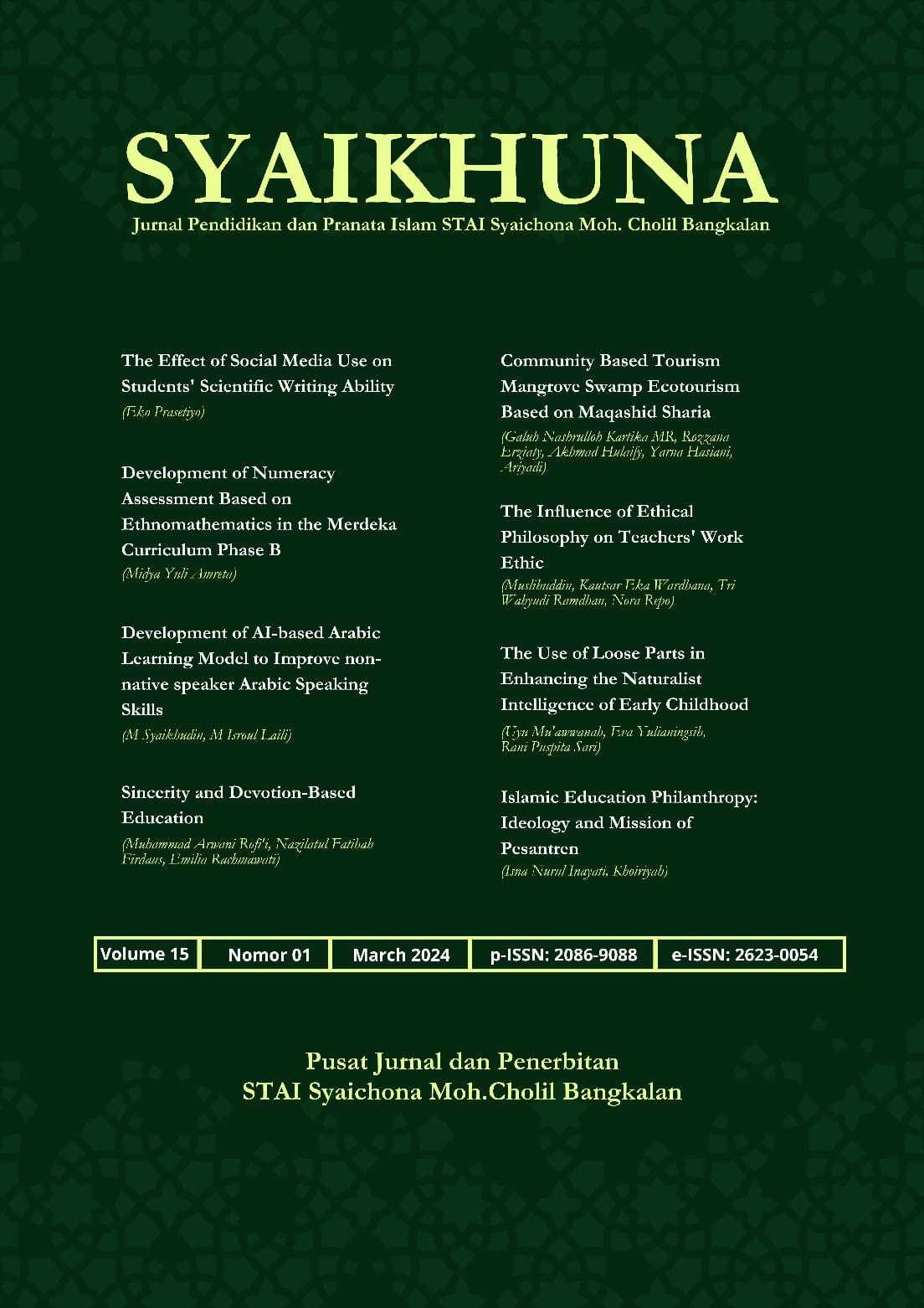Development of Numeracy Assessment Based on Ethnomathematics in the Merdeka Curriculum Phase B
DOI:
https://doi.org/10.62730/syaikhuna.v15i1.7299Keywords:
Assessment Development, Numeracy, Ethnomathematics, Merdeka CurriculumAbstract
The independent curriculum develops learning according to the interests, learning styles, and abilities of students, which are connected to teacher competencies. The phases of the independent curriculum in elementary school are Phase A, Phase B, and Phase C. In the independent curriculum, there is a Minimum Competency Assessment (MCA), which contains numeracy literacy. This research aims to produce a numeracy assessment product for the phase-B independent curriculum that contains Ethnomathematics. Ethnomathematics is the integration of curriculum, pedagogy, mathematics, and local wisdom. Local wisdom used as ethnomathematics integration makes students trained and able to explore mathematical concepts around the environment. This research method is Research And Development (R&D) with the 4D model (Define, Design, Develop, and Desseminase). The results of material validation are 4.9 with a score of 98% conclusion worth using, the results of language validation are an average of 4.6 with a score of 92% conclusion worth using, and the results of material validation 4.7 with a score of 94% conclusion worth using. The average pretest result of trial-1 was 61, and trial-2 was 62.5. The posttest results from trial-1 were 88.4, and trial-2 were 92. The N-Gain Score results obtained 0.715, which means high, with the interpretation of the effectiveness of N-Gain 71.5%, which means effective. Student response questionnaire results in 83% very satisfied category. It is concluded that the ethnomathematics-based numeracy assessment in the independent curriculum Phase B developed is feasible to use and effective in learning mathematics.Downloads
Published
2024-03-30
How to Cite
Amreta, M. Y. . (2024). Development of Numeracy Assessment Based on Ethnomathematics in the Merdeka Curriculum Phase B. Syaikhuna: Jurnal Pendidikan Dan Pranata Islam, 15(1), 12–24. https://doi.org/10.62730/syaikhuna.v15i1.7299
Issue
Section
Articles
License
Copyright (c) 2024 Midya Yuli Amreta

This work is licensed under a Creative Commons Attribution 4.0 International License.





